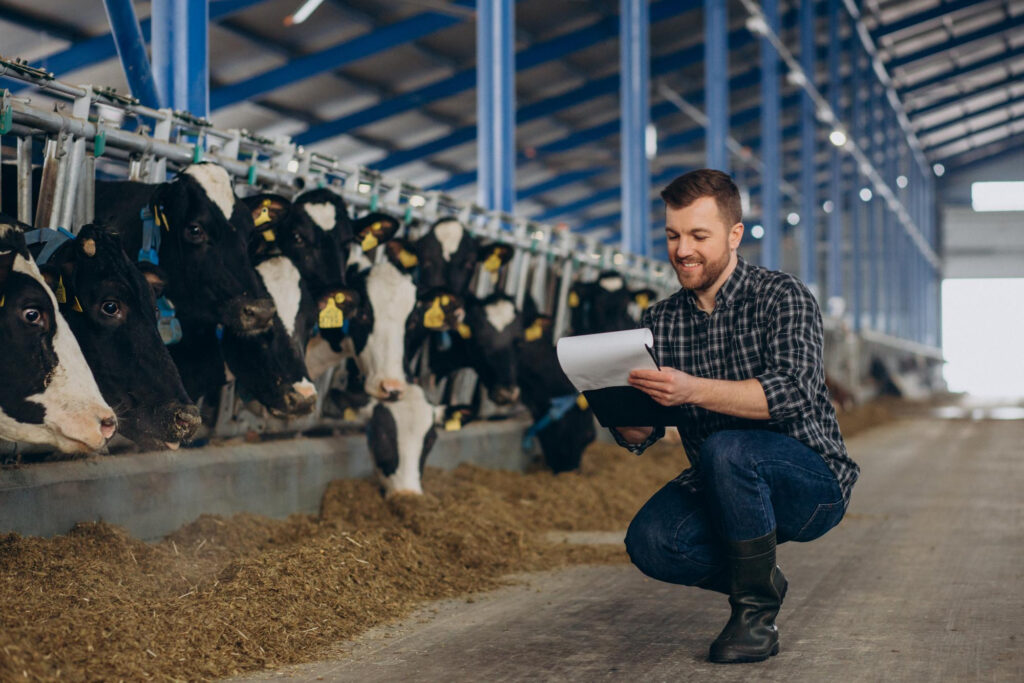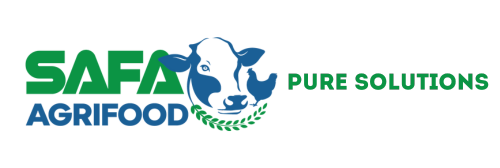We value sustainability!
The livestock industry plays a vital role in feeding billions, yet faces daunting sustainability challenges. But alongside the concerns, promising strides are reshaping the future.
Challenges Loom: The industry contributes significantly to greenhouse gas emissions (14.5%), land use, and water usage. Unsustainable practices like overgrazing and antibiotic overuse threaten ecosystems and public health.
But Hope Emerges: Innovation is leading the way. Precision feeding tools reduce waste and emissions, while exploring alternative protein sources like insects offers more sustainable options. Regenerative agriculture practices like cover cropping improve soil health and carbon sequestration, returning life to the land.
Consumers Drive Change: Rising awareness fuels demand for responsible meat and dairy. Certifications like organic and grass-fed gain traction, and retailers push sustainability goals. This market force incentivizes responsible production.
The Road Ahead: Achieving true sustainability requires collaboration. Integrating these innovations, aligning industry actors, and responding to consumer demands are key.
A future where we can enjoy meat and dairy while protecting our planet is possible. By embracing the opportunities and working together, we can leave a healthier legacy for all.

Carbon Footprint
Our carbon footprint, the invisible trail of greenhouse gases we leave behind, stretches from our daily commutes to the food on our plates. From deforestation to fossil fuel reliance, it paints a picture of our impact on the planet. While seemingly intangible, the consequences are real: rising temperatures, extreme weather events, and jeopardized ecosystems.
The good news? We hold the pen. By making conscious choices, we can shrink our footprint. Walking, cycling, or opting for public transport can leave fewer tire tracks. Embracing energy-efficient appliances and responsible energy providers empowers us to cut our electricity usage. And choosing locally sourced, seasonal food reduces transportation emissions and supports sustainable farming practices. Every mindful step, from opting for reusable bags to minimizing food waste, helps lighten our impact. Remember, a thousand small changes, collectively, can leave a giant footprint for good.

Life Cycle Analysis
From cradle to grave, every product whispers a story of its environmental impact. Lifecycle analysis (LCA) listens closely, meticulously tracking its environmental footprint across every stage – from raw material extraction to manufacturing, use, and disposal. It’s like an eco-detective, uncovering hidden costs in energy consumption, water usage, and greenhouse gas emissions. But LCA doesn’t stop at pointing fingers; it empowers informed choices. By comparing different production methods or materials, it highlights greener paths, allowing businesses to optimize their processes and consumers to make sustainable purchases. So, the next time you pick up a product, remember, LCA can help you choose wisely, ensuring your choices whisper a story of environmental responsibility.

Methane Reduction
The invisible culprit behind rising temperatures, methane’s impact punches far above its weight.
From leaky pipelines to burping cows, its potent greenhouse gas effect demands action. The good news? Solutions are bubbling up. Capturing methane emissions from landfills and farms through biogas technology turns waste into renewable energy, reducing reliance on fossil fuels. In fields, feeding tweaks and improved manure management can help cows digest more efficiently, curbing their methane output. Innovation is also exploring vaccines and even seaweed supplements, offering promising paths to reduce the gassy emissions directly. By tackling methane, we can take a powerful bite out of climate change, leaving a healthier planet for all.
Our Objectives
Our objectives are to direct our clients towards sustainable solutions ensuring that our advancements are consistent with what science indicates is required to maintain the health of our planet and the well-being of humankind.

